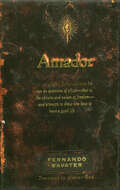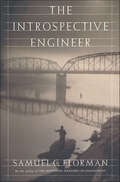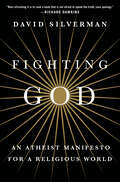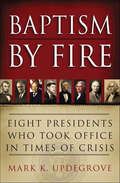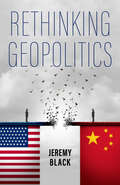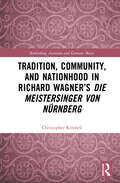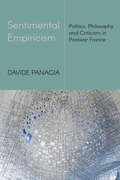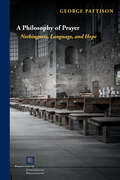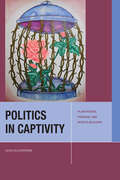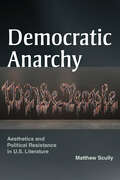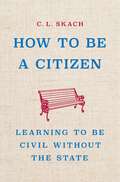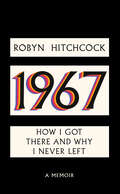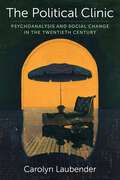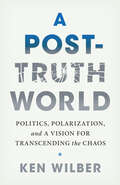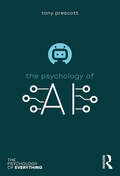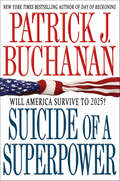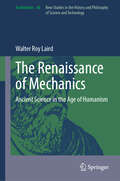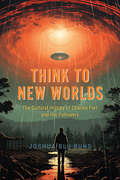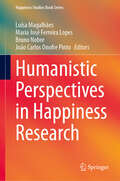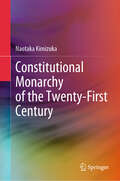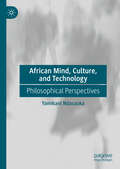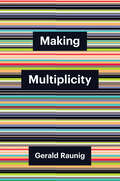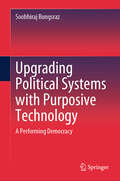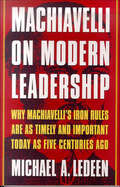- Table View
- List View
Amador: A Father Talks To His Son About Happiness, Freedom, And Love
by Fernando SavaterIn Amador, Fernando Savater writes in the form of a letter to his teenage son about ethics, morals and freedom in today's society.
The Introspective Engineer
by Samuel C. FlormanThe profession of engineering is rarely the topic of serious public discussion. Multimedia, virtual reality, information superhighway-these are the buzzwords of the day. But real engineers, the people who conceive of computers and oversee their manufacture, the people who design and build information systems, cars, bridges, and airplanes, labor in obscurity. There are no engineering heroes, and we as a society are poorer for this.Like Florman's landmark book, The Existential Pleasures of Engineering, The Introspective Engineer is a clarion call to society. We must awaken to the reality that the quality of human life depends on increasingly creative technological solutions to the problems we face. We need cleaner, more economical engines, faster computers, more power, and a healthier planet if we are to survive. It is engineers who will lead us to this future.
Fighting God: An Atheist Manifesto for a Religious World
by David SilvermanFighting God is a firebrand manifesto from one of the most recognizable faces of atheism. In his book, Silverman-a walking, talking atheist billboard known for his appearances on Fox News-discusses the effectiveness, ethics and impact of the in-your-face-atheist who refuses to be silent.Silverman argues that religion is more than just wrong: it is malevolent and does not deserve our respect. It is our duty to be outspoken and do what we can to bring religion down. Examining the mentality, methods and issues facing the firebrand atheist, Silverman presents an overwhelming argument for firebrand atheism and reveals:- All religion is cafeteria religion and almost all agnostics are atheists.- American society grants religion a privileged status, despite the intentions of the Founding Fathers.- Christian politicians have adversely (and un-Constitutionally) affected our society with regard to science, health, women's rights, and gay rights.- The notion of "atheist Jews" is a lie forced on us by religion.- It is not "Islamophobia" to observe dangerous teachings and disproportionate violence in Islam.- Atheists are slowly but surely winning the battle.Fighting God is a provocative, unapologetic book that takes religion to task and will give inspiration to non-believers and serve as the ultimate answer to apologists.
Baptism by Fire: Eight Presidents Who Took Office in Times of Crisis
by Mark K. UpdegroveAmericans have long been defined by how they face adversity. This is perhaps nowhere more evident than in how the nation's chief executive has tackled myriad issues upon entering the White House. The ways that U.S. presidents handle the vast responsibilities of the Oval Office determine the fate of the nation---and, in many cases, the fate of the world.In this fascinating narrative, presidential historian Mark Updegrove looks at eight U.S. presidents who inherited unprecedented crises immediately upon assuming the reigns of power. George Washington led a fragile and fledgling nation while defining the very role of the presidency. When Thomas Jefferson entered the White House, he faced a nation bitterly divided by a two-party schism far more severe than anything encountered today. John Tyler stepped into the office of the presidency during the constitutional crisis left by the first death of a sitting president. Abraham Lincoln inherited a divided nation on the brink of war. Franklin D. Roosevelt sought to quell America's fears during the depths of the Great Depression. His successor, Harry S. Truman, was sworn in as commander in chief at the close of World War II, and John F. Kennedy stepped into the increasingly heated atmosphere of the cold war. In the wake of Watergate, the first unelected president, Gerald R. Ford, aimed to end America's "long national nightmare."As the forty-fourth president takes office, Updegrove presents a timely look at these chief executives and the challenges they faced. In examining the ways in which presidents have addressed crises, Baptism by Fire illustrates the importance of character in leadership—and in the resilience of America itself.
Rethinking Geopolitics
by Jeremy BlackAmid the bloody Russian invasion of Ukraine in 2021 and the escalating tensions across the Taiwan Strait, the geopolitical balance of power has changed significantly in a very short period. If current trends continue, we may be witnessing a tectonic realignment unseen in more than a century.In 1904, Halford Mackinder delivered a seminal lecture entitled "The Geographical Pivot of History" to a packed house at the Royal Geographical Society in London about the historic changes then taking place on the world stage. Britain was the great power of that historical moment, but its political, military, and economic primacy was under serious challenge from the United States, Germany, and Russia. Mackinder predicted that the "heartland" of Eastern Europe held the key to global hegemony and that the struggle for control over this region would be the next great conflict. Ten years later, when an assassin's bullet in Sarajevo launched the world into a calamitous war, Mackinder's analysis proved prescient. As esteemed historian Jeremy Black argues in this timely new volume, the 2020s may be history's next great pivot point. The continued volatility of the global system in the wake of a deadly pandemic exacerbates these pressures. At the same time, the American public remains divided by the question of engagement with the outside world, testing the limits of US postwar hegemony. The time has come for a reconsideration of the 120 years from Mackinder's lecture to now, as well as geopolitics of the present and of the future.
Tradition, Community, and Nationhood in Richard Wagner’s Die Meistersinger von Nürnberg (Rethinking Austrian and German Music)
by Christopher KimbellSince its premiere in 1868, Wagner’s Die Meistersinger von Nürnberg has defied repeated upheavals in the cultural-political landscape of German statehood to retain its unofficial status as the German national opera. The work’s significance as a touchstone of national culture survived even such troubling episodes as its public endorsement in 1933 as ‘the most German of all German operas’ by Joseph Goebbels or the rendition in previous years by audiences at Bayreuth of both national and Nazi-party anthems at the work’s culmination. This chequered reception history and apparent propensity for reinterpretation or reclamation has long fuelled debates over the socio-political meanings of Wagner’s musical narrative. On the question of Beckmesser, for instance, heated arguments have surrounded the existence of antisemitic stereotypes in the work as well as their possible indication of a racial-political dimension to Sachs’s restoration of Nuremberg society. Through a combination of musical-textual analysis with critical theory, this book interrogates the ideological underpinnings of Die Meistersinger’s narrative. In four interconnected studies of the characters of Walther, Sachs, Beckmesser, and Eva, the book traces a critical potential within the opera’s construction of provincial and national identities and problematizes existing discourse around its depiction of race and gender.
Sentimental Empiricism: Politics, Philosophy, and Criticism in Postwar France
by Davide PanagiaSentimental Empiricism reconsiders the legacy of eighteenth and nineteenth century empiricism and moral sentimentalism for the intellectual formation of the generation of postwar French thinkers whose work came to dominate Anglophone conversations across the humanities under the guise of “French theory.” Panagia’s book first shows what was missed in the reception of this literature in the Anglophone academy by attending to how France’s pedagogical milieu plays out church and state relations in the form of educational debates around reading practices, the aesthetics of mimesis, French imperialism, and republican universalism. Panagia then shows how such thinkers as Jean Wahl, Simone de Beauvoir, Gilbert Simondon, Gilles Deleuze, and Michel Foucault develop a sentimental empiricist critical philosophy that distances itself from dialectical critique and challenges the metaphysical premise of inherent relations, especially as it had been articulated in the tradition of Aristotelian scholasticism.Panagia develops the long disputed political legacy of French theory through an exploration of how these thinkers came to understand an aesthetic of mimesis as a credentialing standard for selection to political participation. Since, in France, the ability to imitate well is a state qualification necessary to access offices of elite power, the political, aesthetic, and philosophical critique of mimesis became one of the defining features of sentimental empiricist thought. By exploring the historical, intellectual, cultural, and philosophical complexities of this political aesthetic, Panagia shows how and why postwar French thinkers turned to a tradition of sentimental empiricism in order to develop a new form of criticism attentive to the dispositional powers of domination. This book is available from the publisher on an open access basis.
A Philosophy of Prayer: Nothingness, Language, and Hope (Perspectives in Continental Philosophy)
by George PattisonExploring the silence of prayer in Post-Kantian philosophy and traditional spiritualityA Philosophy of Prayer explores prayer within the perspective of post-Kantian philosophy. Against a background of traditional sources, including Augustine, The Cloud of Unknowing, and the seventeenth-century French school of spirituality, the book uses Schleiermacher, Kierkegaard, Dostoevsky, Heidegger, Berdyaev, Tillich, Marcel, Simone Weil, Emmanuel Levinas, and Jean- Louis Chrétien to provide an interpretation of what is meant by the passivity and self-annihilation of the praying self, suggesting an “apophatics of the personality.”Pattison pays particular attention to the question of language and the implications of the role given to silence in traditional texts, arguing that language remains a defining element of the human–God relationship and that silence is not to be construed as the negation of language but as the revelation of the depth of language itself. The basic structure of prayer is shown to be implicitly eschatological, oriented toward a coming kingdom of justice and peace while, at the same time, expressing a deep desire for ontological homecoming, a tension manifest in, respectively, Levinas and Heidegger. On Pattison’s reading, prayer calls for and develops a particular orientation of the self toward existence, corresponding to the virtue of humility, long understood as the basic Christian virtue. This is shown to be in tension with modernity’s commitment to strong versions of autonomy. However, the choice of humility is not presented as the reinstatement of religious heteronomy but as a free choice of the praying self.
Politics in Captivity: Plantations, Prisons, and World-Building (Just Ideas)
by Lena ZuckerwiseFrom the 1811 German Coast Slave Rebellion to the 1971 Attica Prison Uprising, from the truancy of enslaved women to the extreme self-discipline exercised by prisoners in solitary confinement, Black Americans have, through time, resisted racial regimes in extraordinary and everyday ways. Though these acts of large and small-scale resistance to slavery and incarceration are radical and transformative, they have often gone unnoticed. This book is about Black rebellion in captivity and the ways that many of the conventional well-worn constructs of academic political theory render its political dimensions obscure and indiscernible. While Hannah Arendt is an unlikely theorist to figure prominently in any discussion of Black politics, her concepts of world and worldlessness offer an indispensable framework for articulating a theory of resistance to chattel and carceral captivity. Politics in Captivity begins by taking seriously the ways in which slavery and incarceration share important commonalities, including historical continuity. In Zuckerwise’s account of this commonality, the point of connection between enslaved and incarcerated people is not exploited labor, but rather resistance. The relations between the rebellions of both groups appear in the writings of Muhammed Ahmad, Angela Davis, George Jackson, Ruchell Magee, and Assata Shakur, a genre Zuckerwise calls Black carceral political thought. The insights of these thinkers and activists figure into Zuckerwise’s analyses of largescale uprisings and quotidian practices of resistance, which she conceives as acts of world-building, against conditions of forced worldlessness. In a moment when a collective racial reckoning is underway; when Critical Race Theory is a target of the Right; when prison abolition has become more prominent in mainstream political discourse, it is now more important than ever to look to historical and contemporary practices of resistance to white domination.
Democratic Anarchy: Aesthetics and Political Resistance in U.S. Literature
by Matthew ScullyA dramatic and necessary rethinking of the meaning of DemocracyDemocratic Anarchy grapples with an uncomfortable but obvious truth inimical to democracy: both aesthetics and politics depend on the structuring antagonism of inclusion and exclusion. Yet in Democratic Anarchy, Matthew Scully asks, how can “the people” be represented in a way that acknowledges what remains unrepresentable? What would it mean to face up to the constitutive exclusions that haunt U.S. democracy and its anxious fantasies of equality?Synthesizing a broad range of theoretical traditions and interlocutors—including Lacan, Rancière, Edelman, and Hartman—Democratic Anarchy polemically declares that there has never been, nor can there ever be, a realized democracy in the U.S. because democracy always depends on the hierarchical institution of a formal order by one part of the population over another. Engaging with an expansive corpus of American literature and art (Harriet Jacobs, Nathaniel Hawthorne, Louis Zukofsky, Thomas Pynchon, Toni Morrison, Theresa Hak Kyung Cha, Nari Ward, Ocean Vuong, and Safiya Sinclair), Democratic Anarchy argues that many liberal concepts and institutions are in fact structurally opposed to democratic equality because they depend on regulating what can appear and in what form.By focusing on works that disrupt this regulatory impulse, Scully shows how rhetorical strategies of interruption, excess, and disorder figure the anarchic equality that inegalitarian fantasies of democracy disavow. Democratic Anarchy develops a rigorous theory of equality that refuses to repeat the inequalities against which it positions itself, and it does so by turning to moments of resistance—both aesthetic and political—inaugurated by the equality that inheres in and antagonizes the order of things.
How to Be a Citizen: Learning to Be Civil Without the State
by C. L. SkachAn expert on the writing of constitutions argues that the path to a thriving society begins with forgetting about them: "Not James Madison but Bob Dylan or Annie Lennox should be our guide" (Mark Tushnet). In 2009, constitutional scholar C. L. Skach went to Iraq to help revise the constitution. She survived a missile barrage in the Green Zone—an event that proved a breaking point in her thinking about constitutions. In short: they don&’t really work. In How to Be a Citizen, Skach calls to move beyond constitutions. She argues that just as complex natural systems spontaneously generate order, we can, too. Looking to pandemic gardens, Reggio-Emilia schools, and community-driven safety patrols, she envisions not government by force, but society that is local, cultivated, and true. Grounded in six principles as simple as a call to spend time on a park bench, this book shows how community spaces, education, and markets can be reshaped to nurture cooperation and encourage flourishing. Equal parts personal, philosophical, and practical, How to Be a Citizen invites us to see society not as something imposed by law, but rather something we create together.
1967: How I Got There and Why I Never Left
by Robyn HitchcockThe great eccentric of British psychedelia—beloved by everyone from Led Zeppelin and R.E.M. to the late Jonathan Demme—pens a singularly unique childhood memoir . . . “A bright, nostalgic look at the exhilaration of 1967, this book—illustrated throughout with Hitchcock’s surreal sketches—will appeal to not only the author’s many fans but also anyone interested in the music and culture from the golden age of psychedelia. Wistfully reflective reading.” —Kirkus Reviews “Memoirists rarely begin their work with a stroke of genuine inspiration, and Robyn Hitchcock’s ingenious idea to limit his account of his life to the titular year gives this sharp, funny, finely written book an unusually keen, wistful intensity without sacrificing its sense of the breathtaking sweep of time. I absolutely adored every line of 1967 and every moment I spent reading it.” —Michael Chabon, author of Telegraph Avenue 1967: HOW I GOT THERE AND WHY I NEVER LEFT explores how that pivotal slice of time tastes to a bright, obsessive-compulsive boy who is shipped off to a hothouse academic boarding school as he reaches the age of thirteen—just as Bob Dylan’s Highway 61 Revisited starts to bite, and the Beatles’s Sgt. Pepper’s Lonely Hearts Club Band explodes. When he arrives in January 1966, Robyn Hitchcock is still a boy pining for the comforts of home and his family’s loving au pair, Teresa. By December 1967, he’s mutated into a 6’2? tall rabid Bob Dylan fan, whose two ambitions in life are to get really high and fly to Nashville. In between—as the hippie revolution blossoms in the world outside—Hitchcock adjusts to the hierarchical, homoerotic world of Winchester, threading a path through teachers with arrested development, some oafish peers, and a sullen old maid—a very English freak show. On the way he befriends a cadre of bat-winged teenage prodigies and meets their local guru, the young Brian Eno. At the end of 1967, all the ingredients are in place that will make Robyn Hitchcock a songwriter for life. But then again, does 1967 ever really end?
The Political Clinic: Psychoanalysis and Social Change in the Twentieth Century (New Directions in Critical Theory #94)
by Carolyn LaubenderFor decades, psychoanalysis has provided essential concepts and methodologies for critical theory and the humanities and social sciences. But it is also, inseparably, a clinical practice and technique for treatment. In what ways is clinical practice significant for critical thought? What conceptual resources does the clinic hold for us today?Carolyn Laubender examines cases from Britain and its former colonies to show that clinical psychoanalytic practice constitutes a productive site for novel political thought, theorization, and action. She delves into the clinical work of some of the British Psychoanalytic Society’s most influential practitioners—including Anna Freud, Melanie Klein, Wulf Sachs, D. W. Winnicott, Thomas Main, and John Bowlby—exploring how they developed distinctive and politically salient practices. Laubender argues that these figures transformed the clinic into a laboratory for reimagining race, gender, sexuality, childhood, nation, and democracy. By taking up the clinic as both a site of inquiry and realm of theoretical innovation, she traces how political concepts such as authority, reparation, colonialism, decolonization, communalism, and security at once informed and were reformed by each analyst’s work.While psychoanalytic scholarship has typically focused on its intellectual, social, and political effects outside of the clinic, this interdisciplinary book combines history with feminist and decolonial social theory to recast the clinic as a necessarily politicized space. Challenging common assumptions that psychoanalytic practice is or should be neutral, apolitical, and objective, The Political Clinic also considers what progressive clinical praxis can offer today.
A Post-Truth World: Politics, Polarization, and a Vision for Transcending the Chaos
by Ken WilberA piercing examination of our current social and political situation through the lens of Integral Theory—by the framework&’s founder, cutting-edge philosopher Ken Wilber.Our overwhelmingly divisive socio-political climate is among the greatest challenges of our time. Not only in America but also internationally, it seems that almost every issue raises incredibly vocal oppositional views. Not least of all, the arising of vast networks of disinformation is a testament to our deepening rifts. With so much hostility, antagonism, cynicism, and discord, how can we mend the ruptures in our society?Acclaimed philosopher Ken Wilber examines our polarization through the lens of Integral Theory to show what led to these fractures, both in America and around the world—as well as what is needed for humanity to move forward. In his provocative analysis, he explores how the arising of support for antagonistic authoritarians represents a backlash against the failure of those at the leading edge of consciousness (postmodernism and pluralism) to acknowledge the challenges that persist amidst our imagined progress: that, to date, society has been not proven to be equal, and liberty and justice have not been consistent for all. But a new Integral force is emerging that can move beyond the narcissism, nihilism, and cynicism to offer genuine leadership and move us all toward greater wholeness. All of us can be part of the movement, and here Ken Wilber shows us how.
The Psychology of Artificial Intelligence (The Psychology of Everything)
by Tony PrescottWhat is Artificial Intelligence? How will AI impact society? Is AI more powerful than human intelligence?The Psychology of AI explores all aspects of the psychology–AI relationship, asking how closely AI can resemble humans, and whether this means they could have some form of self-awareness. It considers how AI systems have been modelled on human intelligence and the similarities between brains and computers, along with the current limitations of AI and how these could be overcome in the future. It also looks at how people interact with AI in their everyday lives, exploring some of the ethical and societal risks, such as bias in AI algorithms, and the consequences for our long-term future if AIs do surpass humans in important ways.As AI continues to break new milestones, The Psychology of AI answers key questions about what it really means to be human, and how AI will impact our lives in every way, now and into the future.
The Art of War (Skylight Illuminations Ser.)
by Sun Tzu Thomas ClearySun Tzu's Art of War, compiled more than two thousand years ago, is a study of the anatomy of organizations in conflict. It is perhaps the most prestigious and influential book of strategy in the world today. Now, this unique volume brings together the essential versions of Sun Tzu's text, along with illuminating commentaries and auxiliary texts written by distinguished strategists. The translations, by the renowned translator Thomas Cleary, have all been published previously in book form, except for The Silver Sparrow Art of War, which is available here for the first time. This comprehensive collection contains: The Art of War: This edition of Sun Tzu's text includes the classic collection of commentaries by eleven interpreters. Mastering the Art of War: Consisting of essays by two prominent statesmen-generals of Han dynasty China, Zhuge Liang and Liu Ji, this book develops the strategies of Sun Tzu's classic into a complete handbook of organization and leadership. It draws on episodes from Chinese history to show in concrete terms the proper use of Sun Tzu's principles. The Lost Art of War: Written more than one hundred years after Sun Tzu's text, by Sun Bin, a linear descendant of Sun Tzu, this classic of political and military strategy is faithful to the principles of The Art of War, while developing their practical application much further. The Silver Sparrow Art of War: A version of Sun Tzu's Art of War based on a manuscript of the classic text discovered at a Chinese archeological site in China's Shandong Province in 1972, which contains previously unknown fragments.
Suicide of a Superpower: Will America Survive to 2025?
by Patrick J. BuchananAmerica is disintegrating. The "one Nation under God, indivisible" of the Pledge of Allegiance is passing away. In a few decades, that America will be gone forever. In its place will arise a country unrecognizable to our parents. This is the thrust of Pat Buchanan's Suicide of a Superpower, his most controversial and thought-provoking book to date.Buchanan traces the disintegration to three historic changes: America's loss of her cradle faith, Christianity; the moral, social, and cultural collapse that have followed from that loss; and the slow death of the people who created and ruled the nation. And as our nation disintegrates, our government is failing in its fundamental duties, unable to defend our borders, balance our budgets, or win our wars.How Americans are killing the country they profess to love, and the fate that awaits us if we do not turn around, is what Suicide of a Superpower is all about.
The Renaissance of Mechanics: Ancient Science in the Age of Humanism (Archimedes #68)
by Walter Roy LairdThis book gives an account of the origins of theoretical mechanics in antiquity, its limited reception in the Arabic and Latin Middle Ages, and its recovery and subsequent development in Italy to the time of Galileo. From late antiquity to the fifteenth century, the ancient science of mechanics—the theory of machines—was almost completely unknown in the Latin west. Then, from the mid-fifteenth century on, Italian humanists began to recover the ancient texts, and from them through the sixteenth century Italian mathematicians restored the ancient science of mechanics. The Renaissance of Mechanics first examines the principal ancient works on mechanics—the Aristotelian Mechanical Problems, the mechanical geometry of Archimedes, and Hero’s Mechanics—and then describes their limited reception in the Arabic world and their even more limited transmission to the medieval Latin west. It then traces their recovery in the fifthteenth century and their assimilation inthe sixteenth by Niccolò Tartaglia, Francesco Maurolico, and Guidobaldo dal Monte, culminating in Galileo’s rediscovery of Hero’s lost mechanical principles. The book ends with an examination of Galileo’s mechanics and its relation to his new science of motion, and suggests how modern mechanics would emerge from these ancient roots. Detailed analyses of these works offer new insights and interpretations while remaining accessible to general historians. The Renaissance of Mechanics will be of especial interest to those working in the fields of renaissance humanism and the history of ancient, medieval, and renaissance science and mathematics.
Think to New Worlds: The Cultural History of Charles Fort and His Followers
by Joshua Blu BuhsHow a writer who investigated scientific anomalies inspired a factious movement and made a lasting impact on American culture. Flying saucers. Bigfoot. Frogs raining from the sky. Such phenomena fascinated Charles Fort, the maverick writer who scanned newspapers, journals, and magazines for reports of bizarre occurrences: dogs that talked, vampires, strange visions in the sky, and paranormal activity. His books of anomalies advanced a philosophy that saw science as a small part of a larger system in which truth and falsehood continually transformed into one another. His work found a ragged following of skeptics who questioned not only science but the press, medicine, and politics. Though their worldviews varied, they shared compelling questions about genius, reality, and authority. At the center of this community was adman, writer, and enfant terrible Tiffany Thayer, who founded the Fortean Society and ran it for almost three decades, collecting and reporting on every manner of oddity and conspiracy. In Think to New Worlds, Joshua Blu Buhs argues that the Fortean effect on modern culture is deeper than you think. Fort’s descendants provided tools to expand the imagination, explore the social order, and demonstrate how power is exercised. Science fiction writers put these ideas to work as they sought to uncover the hidden structures undergirding reality. Avant-garde modernists—including the authors William Gaddis, Henry Miller, and Ezra Pound, as well as Surrealist visual artists—were inspired by Fort’s writing about metaphysical and historical forces. And in the years following World War II, flying saucer enthusiasts convinced of alien life raised questions about who controlled the universe. Buhs’s meticulous and entertaining book takes a respectful look at a cast of oddballs and eccentrics, plucking them from history’s margins and spotlighting their mark on American modernism. Think to New Worlds is a timely consideration of a group united not only by conspiracies and mistrust of science but by their place in an ever-expanding universe rich with unexplained occurrences and visionary possibilities.
Humanistic Perspectives in Happiness Research (Happiness Studies Book Series)
by Luísa Magalhães Maria José Ferreira Lopes Bruno Nobre João Carlos Onofre PintoThis volume provides innovative perspectives on the scholarly connection between the humanities and happiness, and considers the narrative expressions of happiness and recent investigations about happiness, its metrics, and objective insights about human wellbeing. This volume relates intemporal humanistic values to views across social and behavioural sciences, and thereby covers a broad interdisciplinary frame, from philosophy, psychology, literary studies, to the communication sciences. The philosophers in this volume discuss the achievement of happiness through the cultivation of virtue, as well as the logic of the gift as an experience of personal fulfilment and the fact that happiness is inextricably linked to hope. Their chapters take on the approach of the permanent human struggle to generate global horizons of happiness and thus attain eternal bliss. Scholars from other fields of the humanities and communication sciences consider the positive messages of environmental happiness in virtual platforms, where the Homo digitalis finds happiness at the click of a button, often under the endorsement of celebrities, or under the visual fruition of playful objects. They also present the intertextual memory of happiness as a condition for humanistic research. Finally, this volume considers the sphere of education as the best place in which to apply the results of sustainable happiness measurement and research, and to realize this complementary, humanistic perspective on happiness research.
Constitutional Monarchy of the Twenty-First Century
by Naotaka KimizukaThis is the first book to investigate how constitutional monarchy could survive in the twentieth and twenty-first centuries, during which many monarchies were overthrown by revolutions or coups d’état in Asia, the Middle East, Africa and Europe. Today we have about 200 countries in the world, but there are only 28 which have their own monarchical sovereigns – emperor, king, queen, grand duke, prince, sultan or emir – and even if we add the Commonwealth realms to these, we would find almost three-quarters of the globe are republics at this moment. So will monarchy disappear from human history in the not-too-distant future? This book shows how the European monarchs have played important roles not only as heads of state, but also as heads of nation, in which they are symbols of unity and national identity, of continuity and stability, fountainheads of national achievement and success, and supporters of social service. Consequently they have grappled with difficult contemporary issues such as social welfare, the global environment, the protection of wildlife, multiculturalism and the LGBT movement which national governments would not be able to deal with sufficiently in each country. This book also suggests reforming the existing emperor system of Japan in reference to the activities of European constitutional monarchy.
African Mind, Culture, and Technology: Philosophical Perspectives
by Yamikani NdasaukaThis book provides a philosophical investigation of technology in Africa, articulating conceptual foundations and analyses rooted in African worldviews and communitarian values. It aims to spur discourse and understanding of how technology can be justly shaped for human advancement in Africa. Yamikani Ndasauka highlights the need to understand African conceptions of existence, ethics, and values as foundations for envisioning more humanistic technological applications. A historical contextualisation traces the layered origins of African technology philosophy in indigenous innovation, resistant adaptation of external systems, and creative fusion of endogenous and exogenous knowledge. The book develops African frameworks to assess and design technology in accord with human dignity and collective advancement.
Making Multiplicity (Theory Redux)
by Gerald RaunigIn this poetical-philosophical manifesto, Gerald Raunig develops a materialist philosophy of multiplicity. On the basis of seventeen conceptual innovations – from windy kin to transversal intellect, from dissemblage to technecologies, from minor masculinity to condividual revolution – Raunig reformulates the question of revolutionary multiplicity. Always staying close to contemporary social struggles and movements, the book starts from the contention that we are in need of a storm against identitarian domination, unification, and homogeneity. Raunig argues that the conceptual and political experimentations with multiplicity around and after 1968 did not go far enough: today, anti-identitarian, queer, and multitudinarian positions should not just be defended but pushed further, over unexpected folds and along the flattest surfaces, beyond previous approaches and previous historical experiences. Making Multiplicity is a conceptual manifesto which sets a new tone in poststructural philosophy. The seventeen concepts developed here form an assemblage that invites us to think, read, write, and indeed, make multiplicity.
Upgrading Political Systems with Purposive Technology: A Performing Democracy
by Soobhiraj BungsrazThis book presents a framework for designing and implementing technologies to reduce risks in parliamentary decision-making, leading to the emergence of e-politics. It emphasizes adaptable virtual systems and problem-solving over predefined solutions, fostering multi-helix engagement among cross-functional teams. These teams collaborate to develop strategic, tactical, and operational solutions for citizens, elected parliamentarians, and organizations such as the UN. The book underscores the importance of risk identification, mitigation, and communication for e-political system safety. The framework leverages technology to create an e-democracy, enhancing the productivity of parliamentarians and promoting democratic sustainability. It builds on the theoretical framework of system engineering, aiming to avoid the pitfalls of previous generations' promises and instead focusing on continuous improvement through a people-centric system. The book introduces the PI App as a purposive technology that aids in implementing these ideas. By promoting an ever-improving parliament and parliamentarians, the framework aims to achieve higher productivity in decision-making roles and evolve practical e-democracy. It highlights the need for a Virtuous Cycle for continuous improvement in strategic decisions for national investment, ultimately leading to a people-centric system. The book envisions a future where technology plays a crucial role in ensuring democratic sustainability and enhancing the effectiveness of parliamentary decision-making.
Machiavelli on Modern Leadership: Why Machiavelli's Iron Rules Are As Timely and Important Today As Five Centuries Ago
by Michael A. LedeenNiccolo Machiavelli, one of the eminent minds of the Italian Renaissance, spent much of a long and active lifetime trying to determine and understand what exceptional qualities of human character-- and what surrounding elements of fortune, luck, and timing-- made great men great leaders successful in war and peace.In perhaps the liveliest book on Machiavelli in years, Michael A. Ledeen measures contemporary movers and doers against the timeless standards established by the great Renaissance writer. Titans of statecraft (Margaret Thatcher, Francois Mitterrand, Pope John Paul II, Ronald Reagan, and Bill Clinton); business and finance (Bill Gates); Wall Street and investing (Warren Buffett); the military (Colin Powell), and sports (Michael Jordan) are judged by Machiavelli's precepts on leadership and the proper use of power. The result is a wide-ranging and scintillating study that illuminates the thoughts of the Renaissance master and the actions of today's truly towering figures as well as the character-challenged pretenders to greatness.Here is an exceptional book on Machiavelli and his ultra-realistic exploration of human nature-- then and now.
